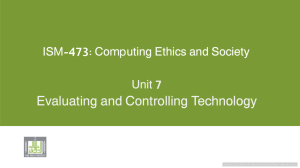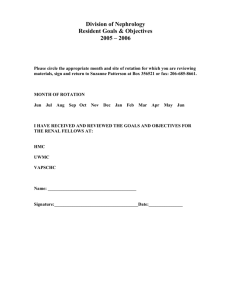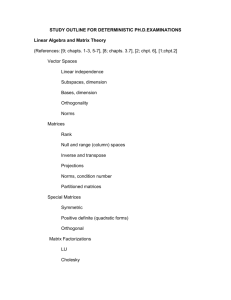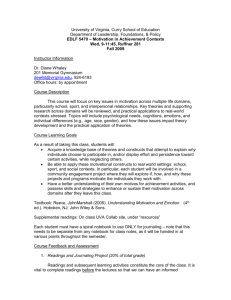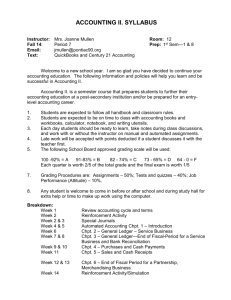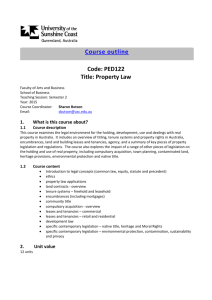Cyberworlds - University of Utah
advertisement
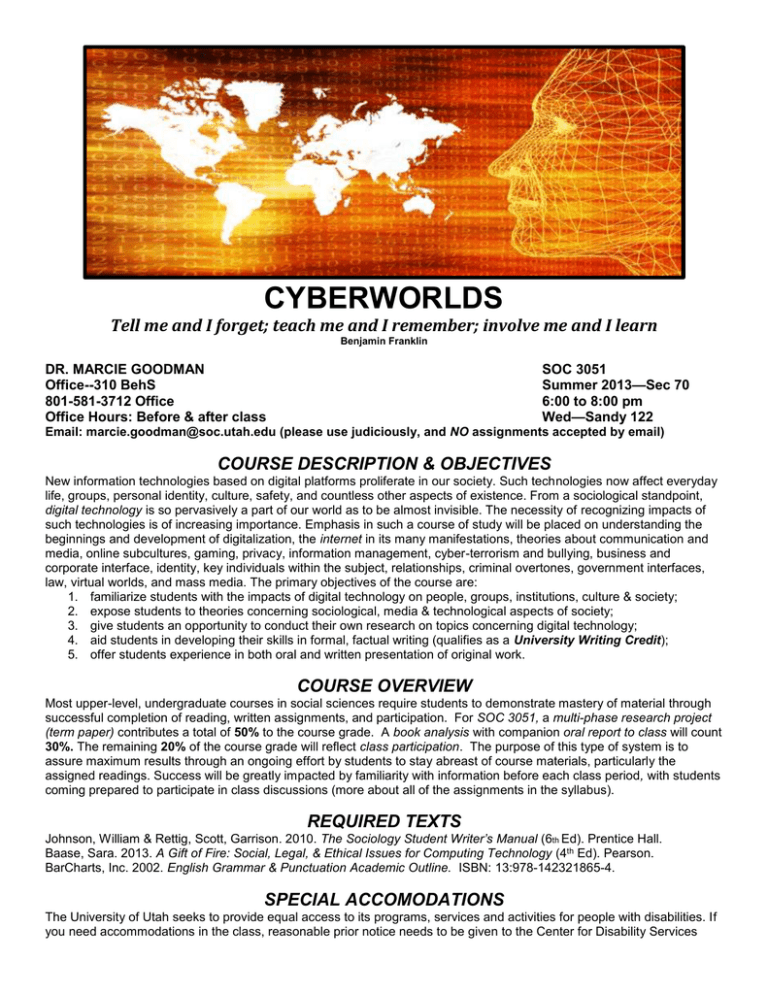
CYBERWORLDS Tell me and I forget; teach me and I remember; involve me and I learn Benjamin Franklin DR. MARCIE GOODMAN Office--310 BehS 801-581-3712 Office Office Hours: Before & after class SOC 3051 Summer 2013—Sec 70 6:00 to 8:00 pm Wed—Sandy 122 Email: marcie.goodman@soc.utah.edu (please use judiciously, and NO assignments accepted by email) COURSE DESCRIPTION & OBJECTIVES New information technologies based on digital platforms proliferate in our society. Such technologies now affect everyday life, groups, personal identity, culture, safety, and countless other aspects of existence. From a sociological standpoint, digital technology is so pervasively a part of our world as to be almost invisible. The necessity of recognizing impacts of such technologies is of increasing importance. Emphasis in such a course of study will be placed on understanding the beginnings and development of digitalization, the internet in its many manifestations, theories about communication and media, online subcultures, gaming, privacy, information management, cyber-terrorism and bullying, business and corporate interface, identity, key individuals within the subject, relationships, criminal overtones, government interfaces, law, virtual worlds, and mass media. The primary objectives of the course are: 1. familiarize students with the impacts of digital technology on people, groups, institutions, culture & society; 2. expose students to theories concerning sociological, media & technological aspects of society; 3. give students an opportunity to conduct their own research on topics concerning digital technology; 4. aid students in developing their skills in formal, factual writing (qualifies as a University Writing Credit); 5. offer students experience in both oral and written presentation of original work. COURSE OVERVIEW Most upper-level, undergraduate courses in social sciences require students to demonstrate mastery of material through successful completion of reading, written assignments, and participation. For SOC 3051, a multi-phase research project (term paper) contributes a total of 50% to the course grade. A book analysis with companion oral report to class will count 30%. The remaining 20% of the course grade will reflect class participation. The purpose of this type of system is to assure maximum results through an ongoing effort by students to stay abreast of course materials, particularly the assigned readings. Success will be greatly impacted by familiarity with information before each class period, with students coming prepared to participate in class discussions (more about all of the assignments in the syllabus). REQUIRED TEXTS Johnson, William & Rettig, Scott, Garrison. 2010. The Sociology Student Writer’s Manual (6th Ed). Prentice Hall. Baase, Sara. 2013. A Gift of Fire: Social, Legal, & Ethical Issues for Computing Technology (4th Ed). Pearson. BarCharts, Inc. 2002. English Grammar & Punctuation Academic Outline. ISBN: 13:978-142321865-4. SPECIAL ACCOMODATIONS The University of Utah seeks to provide equal access to its programs, services and activities for people with disabilities. If you need accommodations in the class, reasonable prior notice needs to be given to the Center for Disability Services (CDS), 162 Olpin Union Building, 581-5020 (V/TDD). CDS will work with you and the instructor to make arrangements for accommodations. All written information in this course can be made available in alternative format with prior notification to the Center for Disability Services. Please discuss any concerns with the professor as soon as possible. PARTICIPATION (20% of course grade) The class will be conducted in a Socratic format with emphasis on professor and student interaction through questions and comments to encourage analysis, critical thinking, preparation and long term learning on the part of the student. Students should come prepared to discuss the subject scheduled on the calendar. Additionally, students will be expected to suggest possible Academic Journal Articles for each subject (those sources presented in the Baase text may not be utilized). Note cards will be marked for every student, and response marks will be given based on the quality of preparation: + (plus), √ (check), or 0 (zero)—representing roughly the grades of A, B, and E. Grade Range A 96% and above; A- 90—95.99%; B+ 85—89.99%; B 80—84.99%; B- 75—79.99%; C+ 70—74.99%; C 65—69.99%; C- 60—64.99%; D+ 55—59.99%; D 50—54.99%; D- 45—49.99%; E Below 45%. Grading Criterion A—An excellent work in all or nearly all aspects of the assignment. The student exemplifies originality of ideas, superior depth of thought, and extensive grasp of topics as well as technical superiority. B—A competent work with a lapse here or there. Ideas are clear and properly expressed; the writing is technically solid. The assignment is effective in meeting all criteria but does not rise to distinction. C—An adequate work, but not good. Student ideas tend to be oversimplified, reductionistic, and lack sufficient explanation or exploration. Problems may also exist with grammar, logic, or ability to express thoughts in a manner reflective of a junior level class. D—A minimal effort by the student—the work is marred by problems with almost all aspects of the assignment. This is not considered a competent performance. E—A failing mark, generally reserved for assignments which are not submitted or miss the target on virtually every criteria of the project. +/- Plus or minus may be given in addition to each of the grade levels when deemed appropriate. MULTI-PHASE RESEARCH/TERM PAPER (50% of course grade) The written communication of ideas based upon research is the backbone of the academic environment, and students will be expected to articulate their erudition in this manner for SOC 3051. Each student will decide upon a research topic that focuses on the impacts of digital technology since 1940 on individuals, groups, institutions, cultures, & society. Term papers will meet the following criteria: Technical 1. 5000 word minimum in length (please note word count at end of paper); 2. 10 point type (as exemplified in this syllabus); 3. 1” margins all around; 4. double spaced lines; 5. grammar, spelling, punctuation, style acceptable in 3000 level college courses (any style guide is fine); 6. legal print on final draft (no rough draft or light type printers please—no ragged edged paper); 7. logic and writing befitting a 3000 level college course; 8. “space games” such as extra lines between paragraphs will be avoided; 9. no binders, bindings, or folders—staple in upper left corner with appropriate cover sheet; 10. proper citations for works referenced according to APA Style Guide. Academic 1. a minimum of 20 recent (since 2000) academic journal articles on the topic will be integrated into paper; 2. a full and creative development of the topic; 3. personal opinion or diatribes avoided (please use Academic Voice); 4. a presentation of ideas designed to bring the student a greater understanding of the subject; 5. format followed will include a title at the beginning of the text, topic paragraph, body, conclusion & references. Students should discern by these detailed criteria that the term paper is a vital and penultimate expression of their work in this course. In order to facilitate a successful product, several steps will be implemented: 1. Working Topic of paper submitted on 5 June for evaluation and suggestions; 2. Proposed References submitted on 19 June for evaluation and suggestions; 3. Topic Outline submitted on 26 June for evaluation and suggestions 4. Rough Draft submitted on 10 July for evaluation and suggestions; 5. Final Term Paper submitted on 31 July. Topic, References, Outline & Rough Draft contribute 15% to the final grade, with the Term Paper counting 35%. BOOK ANALYSIS (30% of course grade) Students will read a book relating to digitalization for a written analysis & oral report according to the following criteria: 1. read a 200+ page book published within the last 5 years (historical or theoretical volumes must be cleared through the professor); 2. major subject areas of course must be represented by the book; 3. no duplications of books will be allowed, so titles will be approved on a first-come, first served basis; 4. a 1500 word minimum written analysis (with a 200 word abstract) of the book will be submitted at the end of the term; a. please use 10-point Arial font and refer to online sample proved in CANVAS system; b. please note word count (without abstract) at end of report; 6. Book analysis is due on 17 July. COURSE CALENDAR 15 May Introduction to course material; presentation of syllabus 22 May Introduction; Writing as communication; Writing competently; Formats; Citing sources; Organizing the research process; Sources of information. Johnson—Introduction; Chpts 1—6 29 May Internet resources; Doing social research; Social issue papers; Critical evaluation of sociological literature Johnson—Chpts 7--10 English Grammar & Punctuation Outline BarCharts, Inc. A brief overview of the history of digitalization: 1940—Present day (www.computerhope.com/history) 5 Jun Unwrapping the gift--------------------------------------------------------- WORKING Baase—Chpt 1 12 Jun Privacy; Freedom of speech Baase—Chpts 2 & 3 19 Jun Intellectual property; ---------------------------------PROPOSED Crime Baase—Chpts 4 & 5 26 Jun Work---------------------------------------- TOPIC Baase—Chpt 6 3 Jul TOPIC DUE! REFERENCES DUE! OUTLINE DUE! Evaluating & controlling technology Baase—Chpt 7 10 Jul Errors, failures & risks-------------------------------- ROUGH Baase—Chpt 8 DRAFT DUE! 17 Jul Professional ethics & responsibilities---------------------------------BOOK ANALYSIS DUE! Baase—Chpt 9 24 Jul PIONEER DAY HOLIDAY—NO CLASSES! 31 Jul Epilogue----------------------------- TERM Baase—Epilogue PAPER DUE! NOTE: Those who wish their grades mailed to them should attach a legal size, peel & stick, self-addressed, stamped envelope with their final paper.
